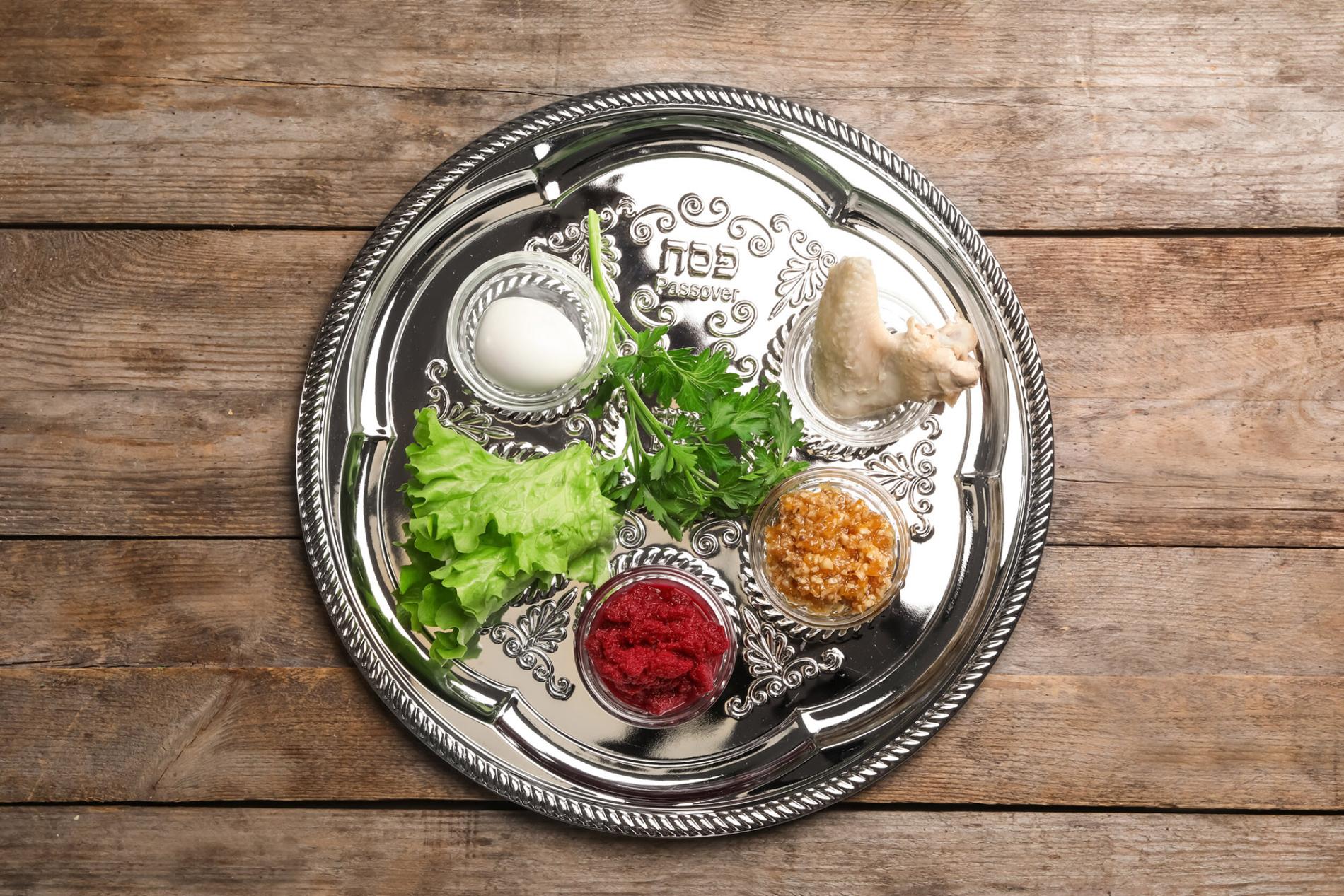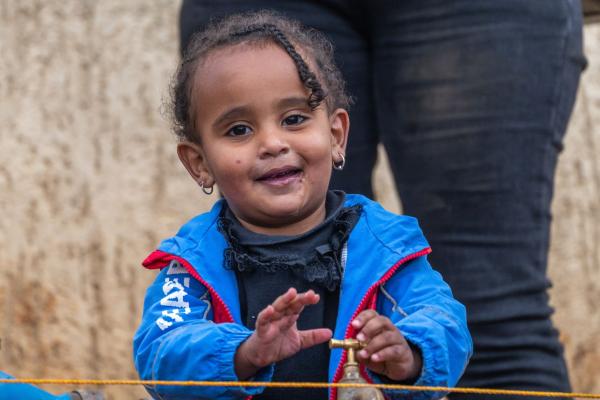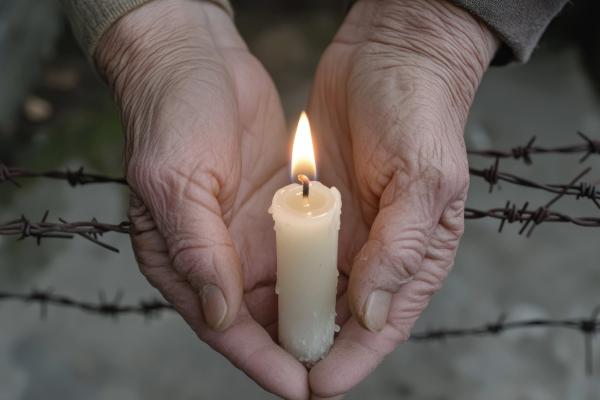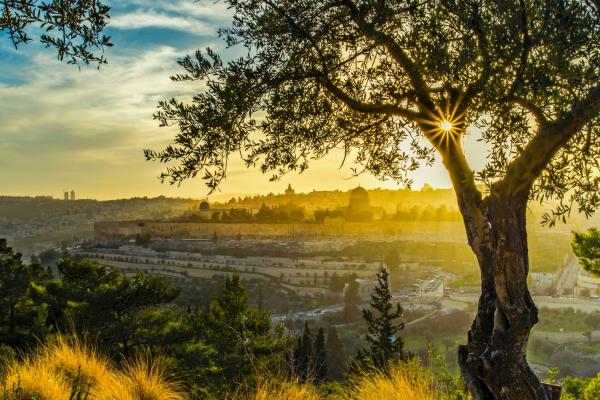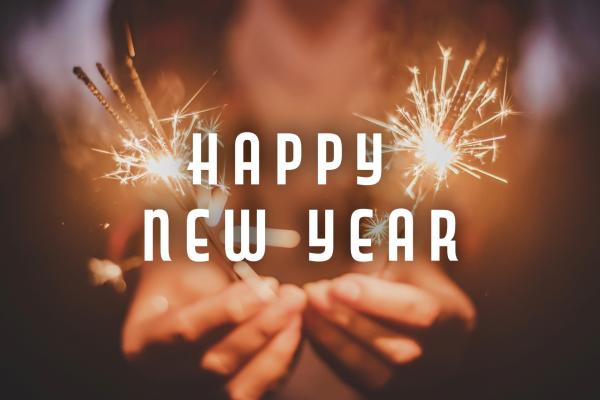Messianic Jews are Jewish believers in Yeshua (Jesus), the promised Messiah of Israel. As such, they continue to practice many of the traditions of their Jewish heritage while recognizing the transforming power of faith in Yeshua and acknowledging the teachings of the New Covenant.
Shabbat
Congregations of Messianic Jews can also include Gentile worshipers who appreciate connecting to the Jewish roots upon which New Testament faith is founded. When we understand the Jewish context of the Messiah and His teachings, our faith, knowledge, and relationship with God are enriched by the deep history and foreshadowing of Yeshua found in much of the Hebrew Scriptures.
Shabbat is the most highly regarded of the Jewish holidays because it is celebrated each week. Shabbat means “rest” and occurs on the Sabbath, the seventh day of the week, or Saturday. Messianic congregations hold services on the Sabbath, either Friday evening or Saturday morning. The Sabbath is one of the seven ordained feasts outlined in Leviticus 23 and other places.
Get the Teachings of the Torah
Study the Torah the first five books of the Bible through the eyes of a first-century disciple. “Teachings of the Torah” invites you into the questions, stories, and interpretations that prove the Bible is a living book.
Get ProductShabbat is a weekly day of rest for physical and spiritual renewal after a week of work. Today, with our five-day work week, a day of rest may not seem to have as much significance as it did in ancient, agricultural times. A day of rest was unheard of in those cultures as there was always more to do. However, in today’s modern societies, whether it’s work for an employer or work at our homes, few people truly take a day off from any kind of work. Yet God knew we needed this day of rest, and the Sabbath is the first special day He commanded and the only day included in the Ten Commandments.
“Shabbat shalom!” is a typical Jewish greeting used by Messianic Jews to wish people Sabbath peace.
There are also yearly holidays that Messianic Jews celebrate. First, it’s helpful to note that the Jewish calendar differs from the Gregorian calendar used by most of the world. In the Jewish year, the first holiday is, naturally, the New Year. This, however, falls sometime in September or October on the Gregorian calendar. For those on the Gregorian calendar, the first Jewish holiday of the year is Purim, which occurs in February or March.
Purim
Purim commemorates God saving the Jews from annihilation in the fifth century when, by the sovereignty of God, the Jewish maiden Esther was chosen as Queen of Persia. From that position, she beseeched the king on behalf of her people who were targeted for destruction through a legal injunction rewarding anyone who killed a Jewish person on the decreed date. Though God is not mentioned in the book of Esther, He is seen at every turn and clearly elevated Esther to the role of queen “for such a time as this.”
Purim is the most festive of Jewish holidays. The story of Esther, called the Megillah, is read in Messianic congregations and synagogues throughout the world. Jewish observers dress in costume, give food gifts, and take part in plays reenacting the story of Esther. Whenever evil Haman’s name is mentioned, audiences stomp their feet and rattle noisemakers called groggers in order to blot out the name of him who sought to destroy the Jewish people.
Messianic Jews are reminded of God’s ultimate provision of salvation, rescuing us to eternal life through Yeshua’s (Jesus’) sacrifice for us.
For more about Purim, see:
Discovering the Power of Purim
Passover
(Also known as: Pesach, Feast of Unleavened Bread) (Pesach means “to pass over, to exempt or spare.”)
Passover is considered the most important of the Jewish holidays because it called the people of Israel out of Egypt to become their own nation. It commemorates when God delivered the Jewish people from slavery in Egypt. On that first Passover night when the Jewish people followed God’s instructions and placed the blood of a sacrificed lamb on their doorposts, the angel of death saw the blood and passed over them. In this way, they were spared the death of their firstborn, the tenth and final plague visited upon Egypt by God.
Get the Teachings of the Torah
Study the Torah the first five books of the Bible through the eyes of a first-century disciple. “Teachings of the Torah” invites you into the questions, stories, and interpretations that prove the Bible is a living book.
Get ProductPassover occurs on the evening of the 14th of the month of Nissan and is followed by the seven-day Feast of Unleavened Bread in which Messianic Jews eat unleavened bread as God instructed in Leviticus 23. Usually, the entire holiday is collectively referred to as “Passover.” This holiday is celebrated in remembrance of the first Passover when God told the people of Israel not to wait for their bread to rise, but to eat their meal in haste so they would be ready for His deliverance at a moment’s notice.
Messianic Jews celebrate the mighty acts God did to rescue the Jewish people from slavery to Egypt. Over and over again, God commanded the Jewish people to remember what He brought them out of. Messianic Jews also recognize, as the apostle Paul pointed out in 1 Corinthians 5:7 that Yeshua became our Passover lamb. He sacrificed His life for us, and we are saved from eternal, spiritual death through His death and resurrection. Messianic Jews and Gentile Believers in Yeshua see God’s hand in powerful symbolism within the traditional elements of the Passover Seder ritual meal.
Many Messianic Jews do not celebrate Easter, preferring instead to commemorate Yeshua’s death and resurrection on our behalf at Passover, the time of year when He was crucified and rose from the dead.
For more about Passover, see:
Passover Nightly Devotionals: Night 1, Night 2, Night 3, Night 4, Night 5, Night 6, Night 7, and a bonus Night 8
Rabbi Jonathan Bernis: Passover Program
Shavuot
Also known as: Feast of Weeks, Feast of First Fruits Shavuot means “weeks.”
Shavuot is also called the Feast of Weeks because it occurs seven weeks after the first Passover Sabbath. Jewish people believe that God gave the Torah (the Law) to His people at Mount Sinai on the date of Shavuot. Therefore, the feast is a time of celebrating the gift of the Torah. Many Jewish people today stay up all night reading the Torah together, and when Shavuot dawn breaks, they pray together and read the Ten Commandments.
Because it also relates to the harvest and the offering of the first fruits of the standing wheat harvest, Shavuot is also called the Feast of First Fruits.
Shavuot is one of three pilgrimage feasts in the Jewish year for which God required every Jewish man to travel to Jerusalem. The first Shavuot after Yeshua’s death marked the pouring out of the Holy Spirit as tongues of fire in the Upper Room in Jerusalem. Jewish men living abroad in many nations returned to Jerusalem for Shavuot, and it was then that God gave the Holy Spirit. Men heard the Gospel of Yeshua in their own languages, and 3,000 came to faith that day.
For Messianic Jewish Believers, Shavuot is a time to recommit ourselves to God’s Word, offer our first fruits to Him, and celebrate the gift of His presence in each of us through His Holy Spirit. It is a time to rejoice in fulfilled prophecy and to hold dear the rich Jewish roots of New Covenant faith in Yeshua.
For more on Shavuot, see:
Shavuot and Knowing the Jewish Roots of Your Faith
Tisha B’Av
Tisha B’Av means “Ninth of Av.”
Tisha B’Av is Hebrew for the Ninth of Av, meaning the ninth day of the Jewish month of Av. Though not a biblically mandated commemoration, many Messianic Jews join other Jewish people the world over in this special day of mourning.
On the ninth day of Av in 586 BC, the First Temple was destroyed by the Babylonians. The Romans destroyed the Second Temple in 70 AD, also on the ninth of Av. Astonishingly, along with these two tragic events, many other catastrophes and persecutions have occurred in Jewish history on this very same date. Tisha B’Av is mentioned as “the fast of the fifth month” in Zechariah 7:3,5 and 8:19.
Today, Tisha B’Av is a day of fasting and mourning for Jewish people throughout the world. Messianic Jews grieve as well for the terrible events, often adding their cry that other Jewish people the world over could come to know the assurance of the apostle Paul that we who believe in Messiah Yeshua are “the temple of God” (1 Corinthians 3:16).
Rosh Hashanah
Also known as: Yom Teruah, Feast of Trumpets, Jewish New Year
Rosh Hashanah means “head of the year.”
Yom Teruah means “day of blowing.”
The Bible refers to it this holiday as the Feast of Trumpets and gives very little instruction about it. Leviticus 23:23-25 reveals that the Feast of Trumpets was for all Israel to rest. It was ordained for the first day of the seventh month of Tishri, and the blowing of the trumpet was to announce the day. While the Bible refers to the month of Nissan as the first month to the Jewish people, the Feast of Trumpets on Tishri 1 is believed by Jewish sages to be the day when God created the world. Thus, the Jewish calendar changes years on Tishri 1 at the Feast of Trumpets. Based on this, the Feast of Trumpets also became known as Rosh Hashanah, which means “head of the year.”
For Jewish people and Messianic Jews, Rosh Hashanah is a time of reflection. Much like when December 31st approaches, people the world over reflect on the previous and coming years, so do people of both Judaism and Messianic Judaism at Rosh Hashanah. It’s a time of spiritual reflection.
For Jewish people, it is a time for making amends and seeking forgiveness ahead of Yom Kippur, the Day of Atonement, when tradition believes God seals one’s fate for the coming year. For Messianic Jews, Rosh Hashanah offers the opportunity to reflect on one’s relationship with God, knowing that our good standing with Him is based solely on the redemption Yeshua accomplished for us through His death and resurrection. It is a time for drawing nearer to God and considering how to follow Him more closely in the year ahead.

More on Rosh Hashanah:
Jewish Voice with Jonathan Bernis – Rosh Hashanah
Yom Kippur
Also known as: Day of Atonement Yom Kippur means “day to atone.” Yom Kippur is the holiest day in Judaism because the High Priest entered into the Holy of Holies before the presence of the Lord. It is the Day of Atonement when all Israel was commanded to bring offerings. On this day alone each year the High Priest entered the Holy of Holies in the Temple and sprinkled the blood of the sacrifice onto the Mercy Seat. The sins of Israel were then symbolically placed on the head of another animal, and it was led outside the camp. Thus Israel’s sin was removed from them.
Yom Kippur is a yearly atonement for sin. It is a day of fasting and prayer, with no work. Jewish tradition maintains that on Yom Kippur, God seals His judgments of people for the coming year. The Day of Atonement is the final day to seek forgiveness, make amends, and pursue a “good sealing.” Messianic Jews celebrate the Day of Atonement with the understanding that Yeshua’s death was the final sacrifice making atonement once and for all. Messianic Jews rejoice in the permanent sealing of the Holy Spirit given to those who profess Yeshua as Messiah according to New Covenant teaching. The book of Hebrews reveals Yeshua as both the perfect sacrifice and perfect High Priest who offered His own blood on our behalf. We are forgiven and made right with God, not for one year only, but for all time. Yom Kippur enables Messianic Jews the opportunity to reflect on the price Yeshua paid so that we might live in restored relationship to God.
For more about Yom Kippur, see”
Yom Kippur and Man’s Need of Atonement
Yom Kippur Through the Eyes of Longing
Sukkot
Also known as: Feast of Booths, Feast of Tabernacles Sukkot means “booths.”
In Leviticus 23, God ordained the Feast of Booths, known today as Sukkot, so that Israel would remember that He had made them dwell in booths during their 40 years in the wilderness. These booths were temporary tent-like structures that could be dismantled and transported when God’s presence in the pillar of cloud by day and fire by night moved as a sign that Israel should follow. Sukkot is a commemoration of God’s protection, guidance, and provision to the children of Israel during their sojourn to the Promised Land.
Celebrating Sukkot requires Jewish people and Messianic Jews to build a sukkah in their yard or on their patio and to “live in it” for seven days. People often take their meals there and spend the evenings in their sukkot, and some sleep in them. Modern sukkot are temporary structures topped with leafy branches through which one can look up and see the stars – bringing to mind God’s promise to make Abraham’s descendants as numerous as the stars.
Sukkot is a reminder of how God dwelled with the Israelites in the wilderness, comforting them with His presence, guiding and protecting them. Messianic Jews rejoice in the Messiah Yeshua who was called Emmanuel, which means “God with us.” Followers of Yeshua have been given the Holy Spirit as God’s ever-present comfort and as a seal that He will never leave us or forsake us. For Messianic Jews, Sukkot is an opportunity to remember God’s faithfulness to Israel in the past and to celebrate the blessing of His presence in the heart of each Believer.

For more about Sukkot, see:
Sukkot: Remembering and Rejoicing
This Week on Jewish Voice: Celebrating Sukkot
Simchat Torah
Simchat Torah means “joy of the Torah.”
Right after Sukkot comes Simchat Torah, celebrating the life-giving joy found in the Torah – the first five books of the Hebrew Scriptures. Week after week throughout the year, Jewish people around the world read the weekly parasha, or portion, of the Torah. Simchat Torah marks the completion of the yearly readings and the beginning again of the reading cycle. Jewish people attend a synagogue service in which the final parasha of the year is read, the scroll is rolled back to the beginning, and the beginning of the Toray is read. In most synagogues, the Torah scroll is carried about the room with much rejoicing, singing, and dancing. Messianic Jews rejoice in the Torah and in the “the Word made flesh,” Yeshua. It is through God’s Word that we know Him better. Simchat Torah is a wonderful day to celebrate His divine communication to us in the Torah and in the whole of Scripture.

For more about Simchat Torah, see:
Rejoicing in the Word of God: Simchat Torah
Simchat Torah: A Joyous Celebration of God’s Word
Chanukah
Also known as: Festival of Light, Feast of Dedication Chanukah means “dedication.”
Chanukah begins on the 25th day of the month of Kislev on the Jewish calendar and is the last Jewish holiday of the Gregorian calendar year, falling in November or December. Chanukah is an eight-day holiday commemorating a miracle of light and the rededication of the Temple after it was desecrated by foreign invaders. Tradition tells us that after the Maccabean army of Jewish men had regained possession of the Temple, there was only enough oil to burn for one day in the Temple lampstand. It would take eight days to make and sanctify more oil. God provided light for the lampstand by making that one day’s oil last eight days.
For Messianic Jews, Chanukah takes on special significance as both a Feast of Dedication (mentioned in John 10) and a Festival of Light. As we see the urgent commitment of the Jewish people of old to rededicate the Temple of God as quickly as possible, it inspires us to fresh dedication to our relationship with God. Also, we celebrate the miracle of light God performed during the time of the Maccabees, and we also celebrate the miracle of Yeshua who is the Light of the World.
Chanukah is celebrated with a number of traditions, including eating fatty foods symbolic of the Temple oil, the lighting of candles on each successive night of the holiday, and giving gifts of increasing value each night.
Many Messianic Jews do not celebrate Christmas, preferring instead to celebrate the gift of Yeshua as the Light of the World at Chanukah.

For more about Chanukah, see:
A Great Miracle Happened There
Messianic Jewish Chanukah Devotionals: 1st Night, 2nd Night, 3rd Night, 4th Night, 5th Night, 6th Night, 7th Night, and 8th Night
Celebrating and commemorating the Holy Days of Judaism is enriching for Messianic Jews and has many vibrant historical truths that Gentile followers of Yeshua can benefit from understanding. God intentionally commanded the Jewish people to remember and celebrate certain days so that we can see His hand throughout all of history and His marvelous faithfulness to Israel. As we see reflections of Yeshua in these holidays, we stand in awe of our sovereign God who has carefully foretold through the ages His plan for our redemption. These feasts and holidays on the Jewish calendar strengthen and encourage our faith today, reminding us that the God who rescued and preserved the Jewish people of ancient days is the same God who has called us to follow His Son, Yeshua, day by day with ever increasing trust.
Get the Teachings of the Torah
Study the Torah the first five books of the Bible through the eyes of a first-century disciple. “Teachings of the Torah” invites you into the questions, stories, and interpretations that prove the Bible is a living book.
Get Product


